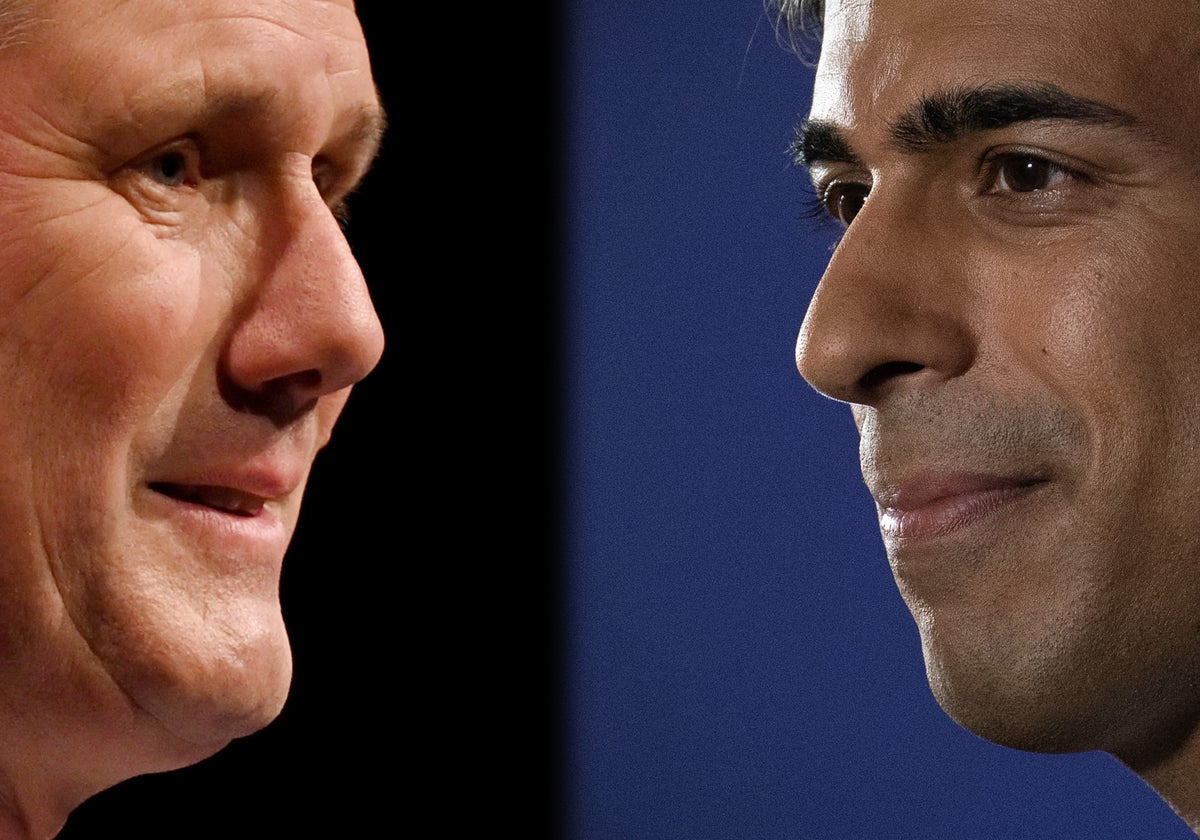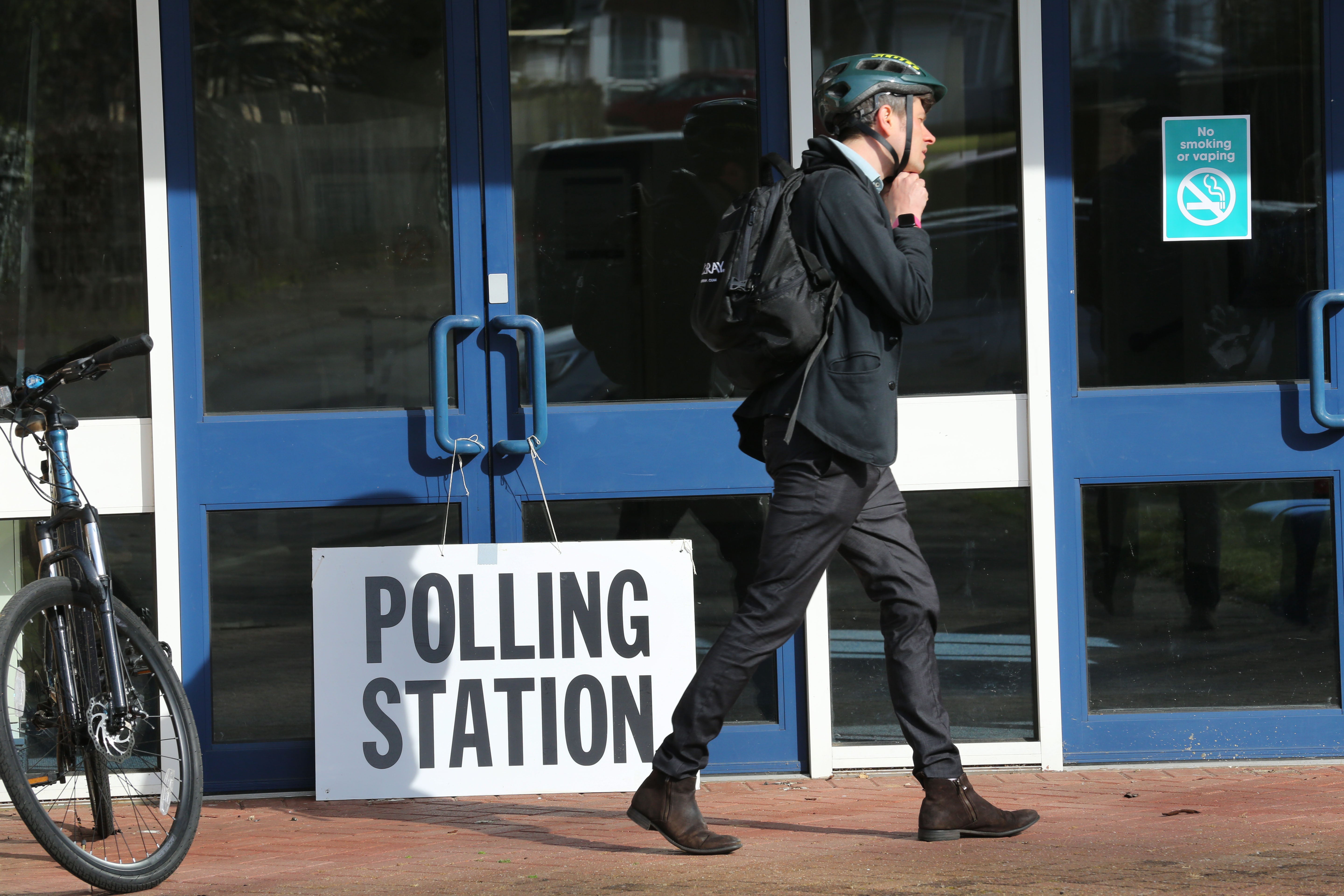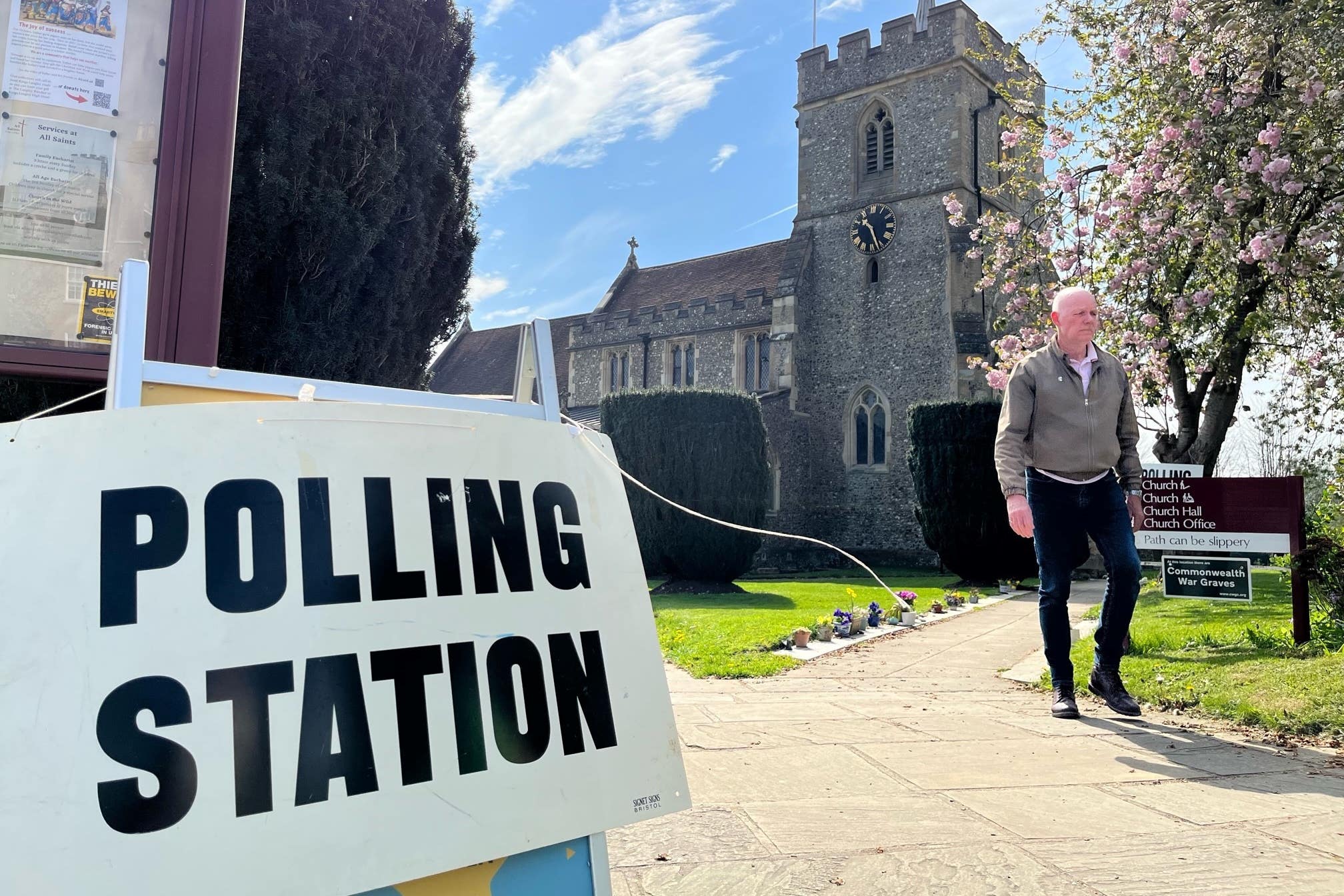
Rishi Sunak is braced for the loss of hundreds of council seats after voters returned to the polls for what could be the last time before the general election.
It comes as the Electoral Commission admitted that new photographic ID rules had “regrettably” left some voters unable to cast their ballot.
The prime minister is under pressure to avoid a bloodbath and prove to his party that he has drawn a line under the crises caused by Boris Johnson and Liz Truss.
But Sir Keir Starmer is also set to face questions over his leadership if the local election results fail to suggest he is on course to win power next year.
In what will be seen as a sign that Mr Sunak is keen to build party morale after the vote, the prime minister has invited Tory MPs to drinks in Downing Street on 15 May.
As polls closed on Thursday night, a Tory spokesperson said: “This will be a tough night for the Conservatives. Any government which has been in power for 13 years is highly likely to lose seats. Independent experts Rallings and Thrasher have said we could lose over 1,000 seats.
“But if Labour want to be in with a chance of taking office after the next general election, as they did in 1997, they need to be making very significant gains as they did in 1995 – the last most comparable election. Anything less than that will pose serious questions for Labour HQ.”
Shabana Mahmood MP, Labour’s national campaign coordinator, said: “If the Conservatives go backwards from their disastrous 2019 local election results, the voters will have sent a damning message about Rishi Sunak’s leadership.
“It’s going to be a long night, and the full picture of results will not form until well into Friday afternoon, but we expect to make gains and show we’re making the progress in the places we need to win at the next election.”
The elections, which took place across England, were the first in which voters have been required to show photographic ID, amid claims that the government is attempting to suppress votes.
There were reports on social media of voters left in tears as they were turned away from polling stations.

Liberal Democrat MP Layla Moran warned that she had heard reports of people being unable to vote in her constituency, adding that she was worried it was happening in “significant numbers” across the country.
Campaigners at the Electoral Reform Society, who were opposed to the requirement for ID, also said they were “seeing countless examples” of people being prevented from voting. And dozens of other MPs suggested that they believed the message had not got through to the electorate, as they urged voters not to forget their proof of identification.
Ahead of the elections, the Labour leader warned that if voters were turned away for not having the correct form of ID it would be an “indictment on the government”. Ministers bore “full responsibility” for getting the message through, Sir Keir said.
The Electoral Commission said that overall the elections were “well run” but the new rule had posed a challenge and some people were unable to vote as a result.
“It will be essential to understand the extent of this impact, and the reasons behind it, before a final view can be taken on how the policy has worked in practice and what can be learned for future elections,” a spokesperson said.
Lib Dem sources insisted it was too early to tell if they would “smash the blue wall”, referring to a swathe of Tory seats in the south of England where they have won a number of by-elections in the wake of the Partygate saga, which involved an inquiry into lockdown-breaking gatherings at Downing Street.
Before voting got under way, Mr Sunak predicted a “hard night” for his party at the ballot box. But he said the Conservatives were moving away from “box set drama” politics, which was widely interpreted as a reference to the chaos-filled premierships of Mr Johnson and Ms Truss.
Up for grabs are around 8,000 seats in 230 councils across parts of England. Among the areas not voting were London, Birmingham, Cornwall, North Yorkshire and Cumbria.

The results are due to begin trickling in in the early hours of Friday morning.
However, the story of the elections may not be known until later in the day after results from key councils are announced.
Polling expert Professor Sir John Curtice has said Sir Keir needs a double-digit lead to demonstrate he is on course to win the keys to No 10.
The Conservatives’ repetition of the analysis by experts that they could lose around 1,000 seats is widely seen as an attempt to manage expectations.
Michael Thrasher, one of the polling gurus cited by the party’s spokesperson, has suggested that losing 500 could be seen as a good night for the Tories.







